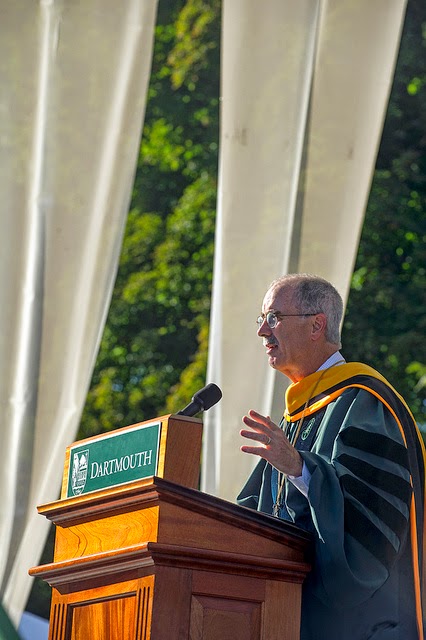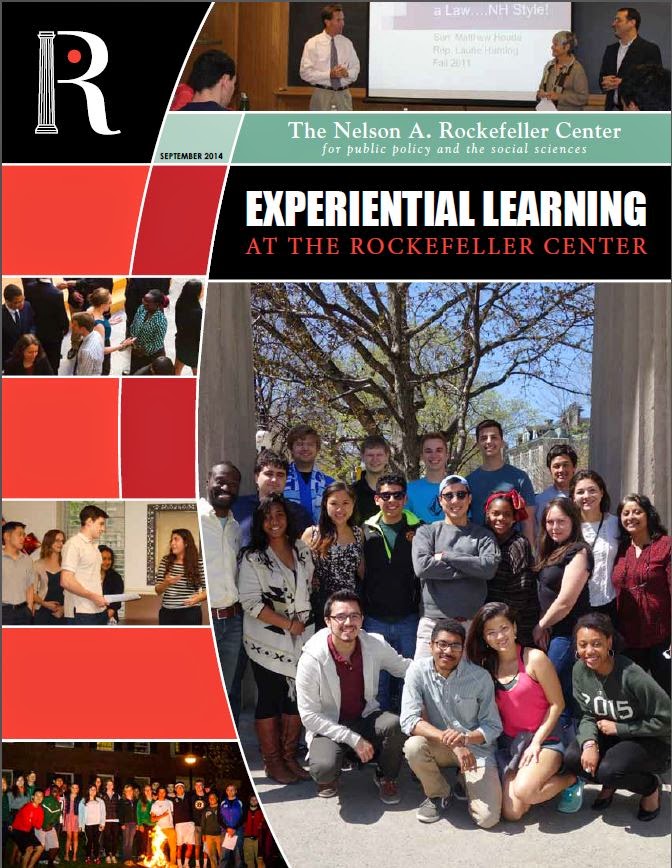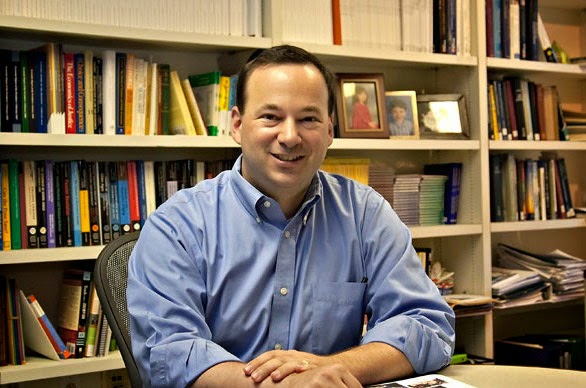- Public Policy
- Leadership
- Funding
- News & Events
- About the Center
Back to Top Nav
Back to Top Nav
Back to Top Nav
Back to Top Nav
Rockefeller Center Director Andrew Samwick provides commentary on a variety of issues in the Direct Line, which is published at the start of each term.
 |
|
Inauguration of Philip J. Hanlon '77
|
In his inauguration address, President Hanlon issued a call-to-action to build Dartmouth’s academic enterprise around four themes: experiential learning, learning technologies, research impact, and affordability. The programs at the Nelson A. Rockefeller Center incorporate all of these themes—most prominently experiential learning—in the realms of public policy and leadership development.
Many of the Center’s programs are among the College’s best examples of experiential learning. The opportunity to participate in the Center’s high-touch learning experiences is often a factor that draws students to Dartmouth rather than its peer institutions. More than one out of five students in Dartmouth’s Class of 2014 participated in at least one Rockefeller Center program during their four years in Hanover.
Experiential learning programs at the Rockefeller Center are based on an active-learning pedagogy with four elements:
Each program is designed with specific learning objectives in mind to enable students to create meaningful connections between theory and practice. Taken together, the programs engage students in and out of the classroom, on and off campus, for all four years they are at Dartmouth. The full range of our experiential learning programs is shown in the Student Opportunities section of our website and in our Experiential Learning Brochure.
 |
| The Center's Experiential Learning brochure which describes our programming in greater depth. |
Co-Curricular and beyond
 |
| Andrew Samwick, Director of the Nelson A. Rockefeller Center for Public Policy and the Social Sciences |
It has been very rewarding for me to use experiential learning as an approach to educating our students in the past 10 years. With each passing year, I see more students who take advantage of our curricular and co-curricular program offerings and emerge with a strong sense of self and confidence in their own vision for their future. This is the transformation my staff and I seek to inspire in students through the work of the Rockefeller Center.
Andrew A. Samwick is the Director of the Nelson A. Rockefeller Center for Public Policy and the Social Sciences, the Sandra L. and Arthur L. Irving '72a, P'10 Professor of Economics at Dartmouth College, and a research associate of the National Bureau of Economic Research. In 2003 and 2004, he served as chief economist on the staff of the President’s Council of Economic Advisers. Since joining the Dartmouth faculty in 1994, his scholarly work has covered a range of topics, including pensions, saving, taxation, portfolio choice, and executive compensation. Professor Samwick has been published in American Economic Review, Journal of Political Economy, Journal of Finance, Journal of Public Economics, and a number of specialized journals and conference volumes. He graduated summa cum laude with a degree in economics from Harvard College and received his Ph.D. in economics from the Massachusetts Institute of Technology. He blogs about economics, politics, and current events.